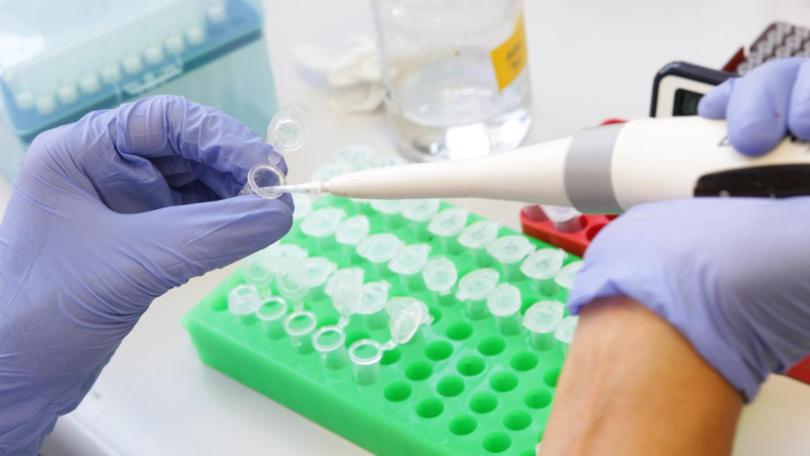Rare cancer patients 'slipping through cracks' as Australian health system called out by new report
Inequities in Australia's healthcare system have produced gaps in survival for cancer sufferers.

Survival rates for people with some rarer cancers have declined and advocates say the government is not doing enough to tackle the health inequities these patients face.
Though there is a low incidence of each rare or less common cancer, the 40,000 people who receive these diagnoses each year make up one quarter of Australians with cancer - more than any single common cancer type.
But there is a stark difference in health outcomes, a report from Rare Cancers Australia has found.
Sign up to The Nightly's newsletters.
Get the first look at the digital newspaper, curated daily stories and breaking headlines delivered to your inbox.
By continuing you agree to our Terms and Privacy Policy.The average proportion of people who survive for at least five years after receiving a diagnosis is 62 per cent for rare cancers, 45 per cent for less common cancers and 77 per cent for common cancers.
For some rare diagnoses such as bladder, urethral and eye cancers, improvements in survival have slowed or even declined.
People with rare or less common cancers comprise one-third of Australia’s total cancer deaths.
“The disparities facing people with rare and less common cancers have been recognised for over a decade, yet little has changed,” the report says.
Australians with rare and less common cancers often find it difficult to access treatments due to bureaucratic and cost barriers.
The Therapeutic Goods Administration has a very high threshold for clinical trial data.
While this is generally a positive, it also means treatments that target small patient populations - like those with rare cancers - may never meet the required evidence threshold.
This means pharmaceutical companies could be disincentivised from seeking a listing on the Pharmaceutical Benefits Scheme, causing people with rare cancers to miss out on therapies.
The report refers to a woman named Caitlin, who was diagnosed with stage 4 clear cell ovarian cancer in 2017.
She said the healthcare system discriminated against rare cancer patients.
“We easily slip through the cracks as we are often not candidates for clinical trials, funded genetic tests and treatments, or Pharmaceutical Benefits Scheme-listed drugs which could prolong life,” she said in the report.
Less common cancers also place heavy financial burdens on patients.
Diagnosis is a more laborious process, with multiple GP and specialist appointments for tests that are often not subsidised.
Treatments are also less accessible and specialist expertise is usually centralised, forcing people to travel further to receive care.
Rare Cancers Australia program lead Jaime Macedo said the cost-of-living crisis already presented a challenge to families.
“Add a rare or less common cancer diagnosis on top and it becomes debilitating,” he said in the report.
Rare Cancers Australia’s report has called on government, healthcare, research, industry and the community to work together to ensure that more than 90 per cent of people with any cancer survive at least five years after diagnosis by 2035.
The government should deliver all 41 recommendations of a Senate inquiry into rare and less common cancers, invest more in clinical trials and telehealth, and develop a national genomics strategy, the report urges.
